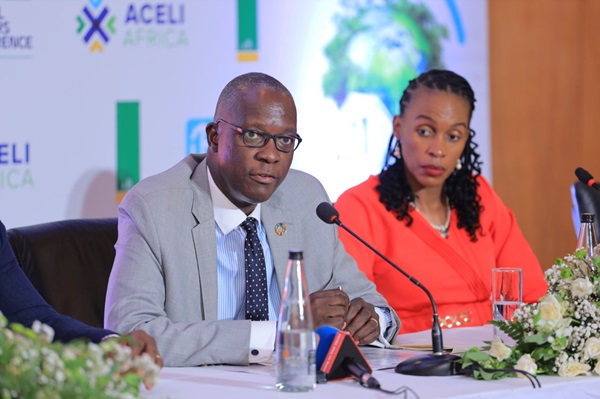
Kampala, Uganda | THE INDEPENDENT | Companies dealing in remittance services are now required to report data on their transactions weekly to the Bank of Uganda (BOU), under a newly developed system.
The Central Bank has developed a new data collection approach regarding diaspora remittances, where all remittance service providers will submit their detailed data weekly using a newly designed remittances data collection form.
This new development, a collaboration between BOU and the International Fund for Agricultural Development (FAD), is expected to revolutionise how Uganda captures and utilises data on one of its most strategic financial flows, remittances.
The new template will be rolled out over the next two months, starting with commercial banks and ultimately onboarding Local Money Remittance Providers, including forex bureaus.
It comes as diaspora remittances steadily grow at 11 to 13 percent per year, hitting 1.42 Billion Dollars in the 12 months ended January 2024, according to BoU.
The move is aimed at better understanding the full impact of remittances as it is essential, not just for economic stability, but also for poverty alleviation, according to the Central Bank.
“By transitioning to transaction-level reporting of remittance flows by remittance service providers, we aim to build a clearer picture of remittance dynamics in Uganda.”
With 1.42 Billion Dollars (5 Trillion Shillings) diaspora remittances are poised to overtake Official Development Assistance, according to the Bank.
It adds that remittances already feature in Uganda’s second National Financial Inclusion Strategy as a key financial service to enhance Ugandans’ livelihood and resilience.
Remittances are increasingly being dominated by Ugandans working in the Middle East, who sent back home about 426 Million Dollars, according to official government records.
The newly launched form is part of the broader PRIME Africa Programme, implemented by IFAD’s Financing Facility for Remittances in seven African countries, including Uganda, with the European Union’s financial support focused on making remittances cheaper, faster, more inclusive, and more impactful.
According to Mohammed El-Ghazaly, IFAD’s Country Representative in Uganda, remittances are a transformative tool, especially in rural areas.
Unfortunately, a big chunk of the value goes into facilitating the remittances, with the Tanzania-Uganda remittances corridor being the most expensive, according to BoU.
Currently, the average cost of sending remittances to Uganda stands at 15 percent, significantly higher than the Sustainable Development Goals (SDG) target of 3 percent, the global and regional average.
Wilbrod Owor, the Chief Executive Officer of the Uganda Bankers Association, told a recent National Stakeholder Remittance Network engagement that remittances provide a tremendous opportunity for financial service providers to support migrants and their families with tailor-made products.
“The partnerships between banks and fintechs are crucial to improve the cost and speed of transactions,” he said.
****
URN
 The Independent Uganda: You get the Truth we Pay the Price
The Independent Uganda: You get the Truth we Pay the Price




As a student deeply interested in the intersection between economics, technology, and national development, I commend the Bank of Uganda (BOU) for launching the new remittance monitoring tool. This is a significant step forward in not only enhancing financial transparency but also in recognizing the growing importance of diaspora remittances to Uganda’s economy.
With remittances contributing a staggering $1.42 billion—close to overtaking official development aid—this initiative could help policymakers, financial institutions, and development partners make data-driven decisions that directly improve livelihoods, especially in rural communities. It’s also encouraging to see Uganda aligning itself with international efforts like the PRIME Africa Programme to reduce remittance costs, which currently stand at an unsustainable 15%.
However, I believe more should be done to regulate the cost structures of remittance corridors like Tanzania–Uganda, and to promote digital platforms through partnerships with fintechs. Lowering the cost of transactions not only meets Sustainable Development Goal targets but also ensures that more money reaches the intended recipients—often families dependent on this income for education, healthcare, and daily living.
As young Ugandans and future professionals, we must support such innovations and push for inclusive financial policies that empower all citizens, both home and abroad.
Regards,
Nyombi Obadiah.